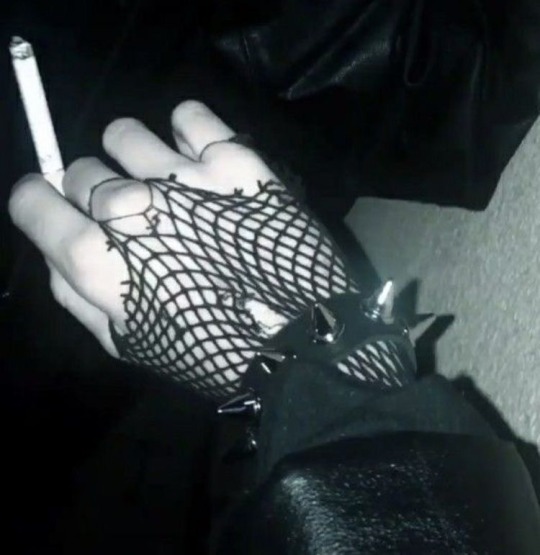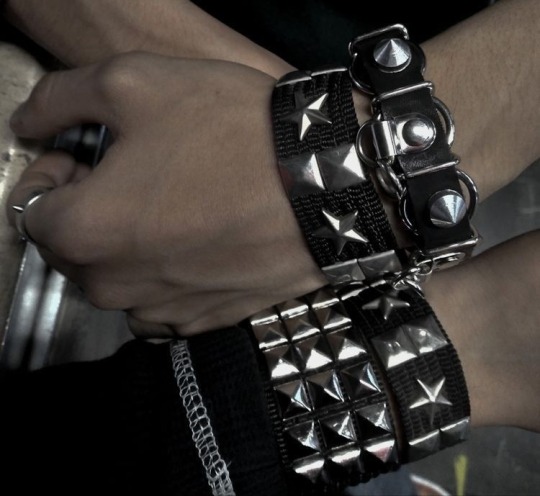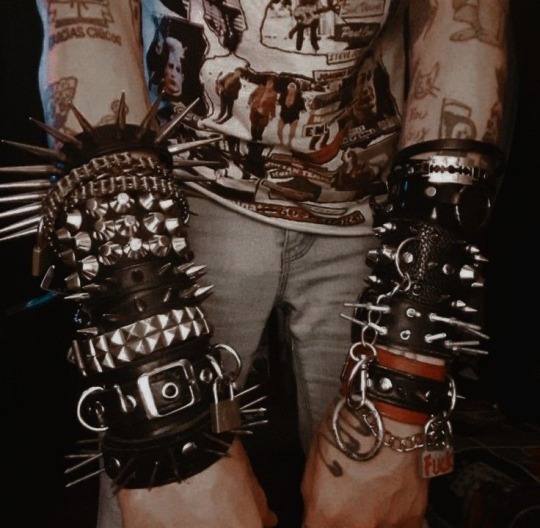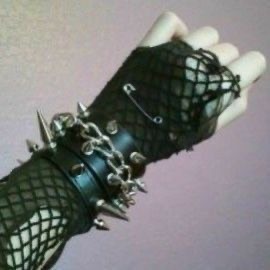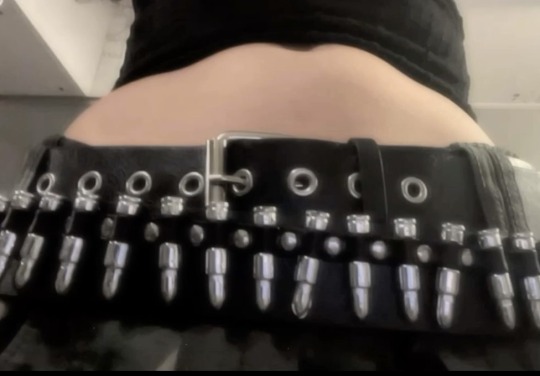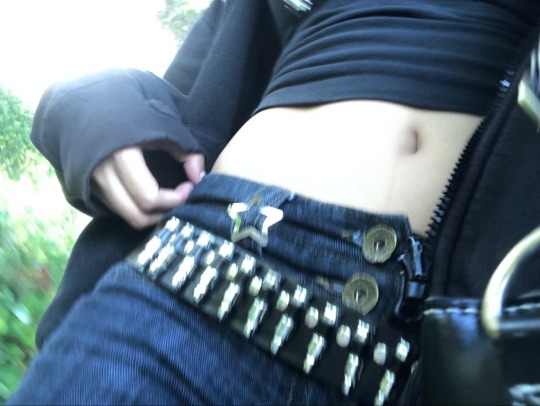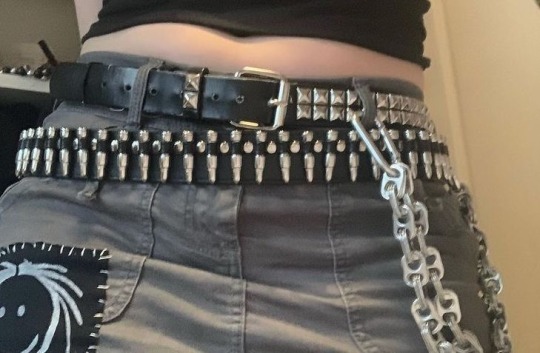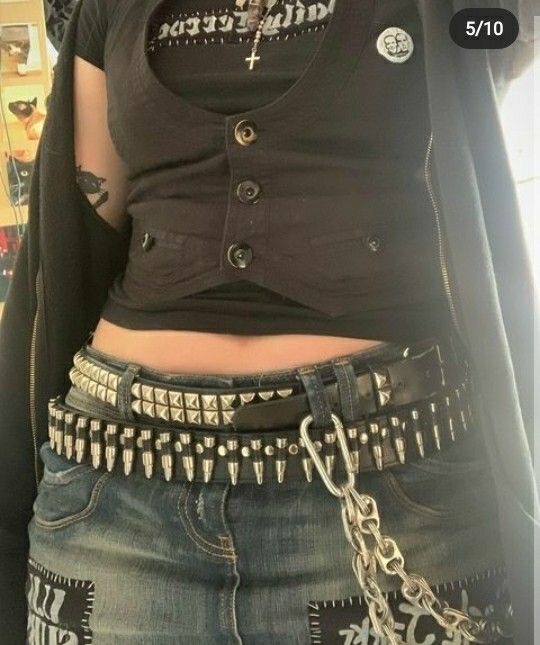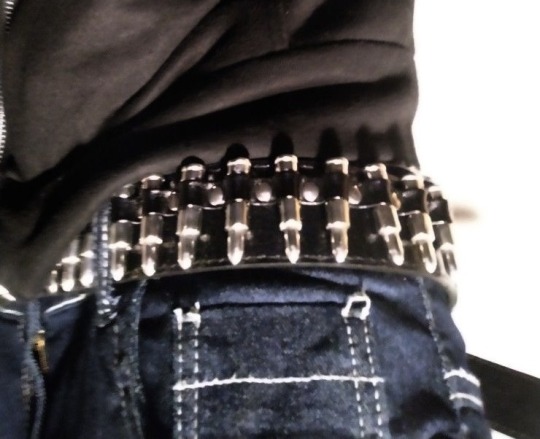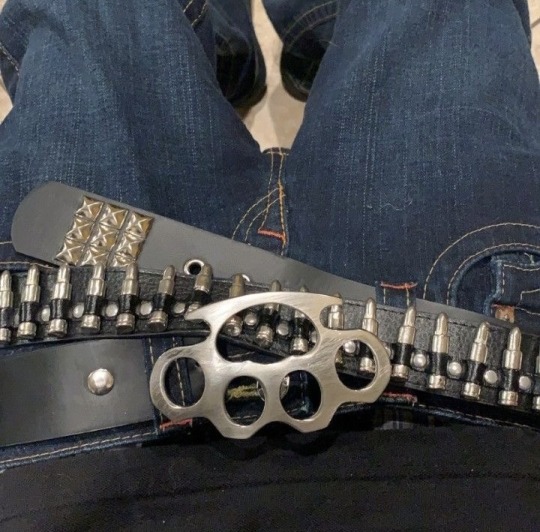main blog: @clouds-in-the-sky. This is a side blog where I ramble about my OCs!
Don't wanna be here? Send us removal request.
Text
Now that I'm in college, it kind of slowly dawns in on me that at this age, Andres and Emil enlisted to be soldiers and trained to be one. Like, they both had dreams of getting into a college or university, having a normal life talking with peers. Instead, because of their circumstances, they're forced here into a military camp. They're both so young, they shouldn't be here.
0 notes
Text
I don't know if I brought this up before but I'm gonna remove Andres's kid diddler uncle since I found no use for it. I guess the only use I can see is like, "Andres's father finds out, blames Andres and he represses himself further," which, honestly, can be replaced by something better.
So yeah, Andres's dad is a bitch we all know that. When Andres was younger, he was curious about make up. But he's a guy, so he didn't want to try and push it any further. Then, met his gay classmate, who managed to convince him to try it. Andres did and he felt happy for a bit, until he realized what he did and quickly wiped the make up off of his face. He'd still try it again and again, because it feels good, even though it pains him deep inside. One day, his father catches him trying to put on lipstick. Naturally, he gets his ass beat and after that, Andres swears to never get near that shit again. He avoids his classmate. Over the years, he represses those memories. He sees it as his biggest sign of weakness and he shouldn't fall to that temptation again. He tells himself he'll never interact with those kinds of people again, just so he can never get in touch with that side of himself.
Monica further reinforces all this homophobic, manly shit. She relies on Andres to be a man, and if he cries then he has no balls.
So, when he enters the army, he sees Emil and immediately feels highly insecure. He keeps remembering what he did in elementary and curses himself because he's not a real man compared to Emil.
Andres looks at the mirror one night and sees that little boy again, staring back at himself with cherry red lips. And he clenches the sink and grits his jaw seeing his present self: a violent nobody who pushes everyone away because he sees all the other men as competition. He hates calling himself a man because he thinks he doesn't qualify for that word. He's arrogant on the outside outside and tries to brag and tries to act tough when it's so fucking obvious he's trying to make up for what he lacks.
And when he sees Emil one day sporting a face full of make up, in a dress (because he has a side job of doing drag to earn money for his sick mom), Andres's head spins. It's two completely contrasting things that shouldn't go together. It's Andres's model and Andres's younger self. His brain just fucking bluescreens and he defaults to lashing out. How can Emil betray his masculinity like this? And if he could still be a man and do make up, then why couldn't Andres do it? That just means he isn't even strong enough to try again.
1 note
·
View note
Text
Sometimes I forget Andres and Emil were only 18 years old when they met and didn't have decent childhoods or healthy relationships or romances
They're both immature when it comes to love. Emil's highschool relationship broke him because that made him learn all his worth was only for sex and his sexuality. His identity as a gay man should only be kept a secret, and if he messes up, then that's his fault for being gay. And his family wasn't great either.
His mom was a chronic people pleaser, who was always trying to find a man, because she was taught that her worth comes from her being loved by someone. When Emil's biological father left, it devastated her. She didn't want her son to be fatherless. She ended up with someone abusive.
Emil was frustrated, told her "Mom, can't you see I'm right here? Why depend on all these men when your son still loves you?" Something like that. His mom is emotionally unstable, verbally abusive. But Emil still loved her because he thought he owed his existence to her. He's an only child, she's a single mom. No matter what happens, he should be there for her, right?
Emil was always the caretaker in a relationship. With his mom, with his ex. He's the only one keeping shit together. Even with Andres
Emil likes Andres because he's a "hard to get" type of guy and because it's fun to tease Andres. Andres likes Emil because he's a genuine person who's just annoying a lot.
Andres pushes Emil away so many times, but for some reason, Emil keeps coming back. Maybe for Emil, his reason is because of his instincts to try and keep a relationship together no matter how messy it is. When a fall out happens, he'll think it's his fault for not doing better
Andres's previous relationship was kind of toxic co-dependent ig. He depended on Monica because she was legit older than him and knew how to go around. But she depended on him for emotional baggage. She always kind of fumbled his emotional baggage, so he thought that he just shouldn't try to vent anymore. He became more reserved and closed-off because he didn't want to be a burden. He's used to just being there, for someone to dump their feelings on. Emil experienced similar stuff.
1 note
·
View note
Text
O yeah i forgot to post here but I posted 2 new stories this week, both involving Andres and his backstory.
Andres feels something he shouldn't feel when thinking about his best friend.
Andres x Emil. Mild pining?? <300 words
Right before Andres is executed by the hands of guerrillas, a cadre steps in to stop it.
General. >1000 words (yipee!). Maybe involved a sprinkle of some Philippine politics (search up NPA Philippines, that's what the other characters in this story are) but the oneshot itself is mainly drama lol
1 note
·
View note
Text
Words to Describe Facial Expressions (Anger Edition)
Fuming: visibly enraged and simmering with anger.
Scowling: displaying a dark, threatening expression.
Sneering: showing disdain through facial contortion.
Glowering: looking or staring with sullen dislike, hostility, or anger.
Grimacing: twisting the face to express pain, disgust, or contempt.
Flaring nostrils: indicating increased anger or activity; preparing for action.
Tight-lipped: pressed together, often in determination or repressed anger.
Furrowed brow: a forehead lined with concern or anger.
Taut: pulled tight, showing stress or strain, often from anger.
Incensed: extremely angry; furious, as if filled with smoke.
2K notes
·
View notes
Text
A list of moments and actions that could reflect when a character realizes they truly hate someone
Noticing they instinctively frown or feel their mood darken when the other person is mentioned.
Feeling an involuntary surge of irritation when they hear the other person's voice or laughter.
Realizing they've been subconsciously avoiding places or events where they might encounter the person.
Experiencing a sense of satisfaction when something goes wrong for the other person.
Finding themselves speaking ill of the person, even when not provoked.
Feeling a strong aversion to anything the other person likes or supports, just out of spite.
Deliberately opposing or sabotaging the other person’s ideas or efforts, regardless of the consequences.
Catching themselves planning what to say or do next time they meet, ensuring it’s cutting or dismissive.
Feeling a sense of dread or anger bubbling up whenever they have to spend time near the person.
Holding on to every slight or mistake the person has ever made, recounting them as proof of their unworthiness.
Feeling physically tense or on edge in the other person's presence, or when thinking about them.
Having zero tolerance for any of their jokes or attempts at light-heartedness.
Showing no empathy or compassion when the other person is vulnerable or in trouble.
Finding that their dislike has become a part of their identity, shaping their interactions and decisions.
Realizing they can no longer recall any good qualities the other person might have once had.
3K notes
·
View notes
Text
Character Development Questions: Hard Mode
Does your character have siblings or family members in their age group? Which one are they closest with?
What is/was your character’s relationship with their mother like?
What is/was your character’s relationship with their father like?
Has your character ever witnessed something that fundamentally changed them? If so, does anyone else know?
On an average day, what can be found in your character’s pockets?
Does your character have recurring themes in their dreams?
Does your character have recurring themes in their nightmares?
Has your character ever fired a gun? If so, what was their first target?
Is your character’s current socioeconomic status different than it was when they were growing up?
Does your character feel more comfortable with more clothing, or with less clothing?
In what situation was your character the most afraid they’ve ever been?
In what situation was your character the most calm they’ve ever been?
Is your character bothered by the sight of blood? If so, in what way?
Does your character remember names or faces easier?
Is your character preoccupied with money or material possession? Why or why not?
Which does your character idealize most: happiness or success?
What was your character’s favorite toy as a child?
Is your character more likely to admire wisdom, or ambition in others?
What is your character’s biggest relationship flaw? Has this flaw destroyed relationships for them before?
In what ways does your character compare themselves to others? Do they do this for the sake of self-validation, or self-criticism?
If something tragic or negative happens to your character, do they believe they may have caused or deserved it, or are they quick to blame others?
What does your character like in other people?
What does your character dislike in other people?
How quick is your character to trust someone else?
How quick is your character to suspect someone else? Does this change if they are close with that person?
How does your character behave around children?
How does your character normally deal with confrontation?
How quick or slow is your character to resort to physical violence in a confrontation?
What did your character dream of being or doing as a child? Did that dream come true?
What does your character find repulsive or disgusting?
Describe a scenario in which your character feels most comfortable.
Describe a scenario in which your character feels most uncomfortable.
In the face of criticism, is your character defensive, self-deprecating, or willing to improve?
Is your character more likely to keep trying a solution/method that didn’t work the first time, or immediately move on to a different solution/method?
How does your character behave around people they like?
How does your character behave around people they dislike?
Is your character more concerned with defending their honor, or protecting their status?
Is your character more likely to remove a problem/threat, or remove themselves from a problem/threat?
Has your character ever been bitten by an animal? How were they affected (or unaffected)?
How does your character treat people in service jobs?
Does your character feel that they deserve to have what they want, whether it be material or abstract, or do they feel they must earn it first?
Has your character ever had a parental figure who was not related to them?
Has your character ever had a dependent figure who was not related to them?
How easy or difficult is it for your character to say “I love you?” Can they say it without meaning it?
What does your character believe will happen to them after they die? Does this belief scare them?
133K notes
·
View notes
Text
Ok finally figured out the part of Andres's backstory after he deserts the military (I forgot if I already elaborated that he deserted cuz basically His Friends Died) and joins the insurgents instead.
So he runs away for like 2 or 3 days straight — 4 or 5 if I want him to suffer — and he has nothing but his uniform, weapons, and phone on him. And after a few days, he comes across some guy. Since he's covered in blood and looks like he's on the verge of a breakdown, the guy asks "what's wrong?" and takes him to a remote village in the mountains.
There, Andres is given shelter and new clothes and the villager guy and his family help him, while Andres explains what happened.
Then blah blah, Andres lives there atp and he helps the community out. Then later on it turns out the village has a bunch of insurgents. Dude is the only ex-army guy which is why he felt left out at first.
And after some personal introspection and several drunken breakdowns because he realizes he literally has nothing left in life, he's like "I only have my guns with me, I've deserted the army, I might as well use my skills for good" and joins the insurgents.
While there, he meets a girl and falls in love with her and just when he's about to finally form one meaningful connection after the death of his friends, she dies lmao
0 notes
Text
TW: discussions of grooming and sexual abuse, mention of csa
Oh shit it's 4 AM and I'm brainrotting Andres
Andres's father raised him with toxic ideals and such, leading him to being mildly misogynistic, plus Andres never having any positive matriarch in his life leading up to Monica, is what really shakes him when he met her. Here is this hot ass woman older than you, who's deeply caring and motherly for you. Who'd protect you from harm, who'd educate you, who'd be willing to respect your wishes of not wanting to be treated like a kid anymore.
That's why he was so drawn to her. She's everything he could ask for in a woman. And because she's the only woman in his life who does seemingly no harm, he'd do EVERYTHING to keep her. He'd obey her, ignore and overlook the red flags, fulfill her wishes, etc.
He was only a 15-year-old boy, desperate for love and care, his body still trying to heal scars he acquired when he was being SA'd years prior. She was a 22-year-old fuckhead who saw him as someone who can easily fulfill her wish of having a youthful boyfriend.
And fun fact, she's one of the reasons why he repressed his bisexuality up until Emil. Because she was so possessive of him, that when he tried to express he feels something when looking at guys, she's like "So, are you saying you're gay? You're gay and never actually loved me?" And he was so scared of her leaving that he shook his head and never brought it up again.
And while doing all of that, she was in an unloving relationship with a man her age, because she was leeching off of his money.
And when the actual boyfriend finds out and a fight happens, Andres cries, weeping, because the only person he depended on was taken away. What can he do? What will he do? He'll prove to the both of them, to his dead father, and to himself, that he's a real man and is strong. So he joins the army. He's desperate for a home, for food, for any sort of meaningful human connection even though he's so scared of doing that again. So scared of everything.
0 notes
Text
it's always so fascinating and heartbreaking when a character in a story is simultaneously idolized and abused. a chosen prophet destined for martyrdom. a child prodigy forced to grow up too fast. a powerful warrior raised as nothing but a weapon. there's just something so uniquely messed up about singing someone's praises whilst destroying them.
145K notes
·
View notes
Text

Military Sentences, Vol. 1
(Sentences for conversations muses that are/were in the military. Adjust phrasing where needed)
"Apparently you need another demonstration of my authority."
"I wouldn't have ordered it if I didn't feel it safe."
"I admire your loyalty. I hope you feel that for me someday."
"What's the next step? Do we escalate?"
"May I speak freely?"
"Militiary secrets are the most fleeting of all."
"I'll learn your name once you've earned it."
"What the hell has my country done for me?"
"I wish I were on a long sea voyage somewhere."
"I do not expect you to fail."
"Are you going to report me?"
"If there's a screw up, it's your screw up."
"Do the consequences of attacking outweigh the potential benefiits?"
"There's more trauma in this life than war."
"You are outnumbered, outgunned, and in the wrong!"
"Do not fire without my command!"
"What I want to know is how someone like you managed to stay alive this long."
"Innocent people die every day - they may as well do so for a reason!"
"I'll never get to be the captain."
"That part of me that admires you is not the part that makes tough decisions."
"If I'm to be the captain, I've got to act like one."
"I've never seen so many men wasted so badly."
"Have you ever taken a bullet?"
"Your reputation won't last if you don't do your job!"
"The rules of the treaty are clear!"
"That's the thing about war. People die."
"Command and compassion is a fool's mixture."
"Any other orders, sir?"
"Soon there will be war."
"Do you know how many years of my life I've given to my country?"
111 notes
·
View notes
Text
So I’ve been thinking about rational vs. irrational character decisions.
An irrational decision is great when your story is driven by your character’s personal flaws and struggles, and for crafting situations where your audience knows that these decisions are unavoidable because they are perfectly in character. Having your characters be perfectly able to solve their problems if they weren’t, y’know, themselves, is so very hard-hitting, and can be a fantastic part of a narrative.
The downfall with irrational decisions is that it can make situations seem less dire or make your antagonists seem less dangerous. If your characters are falling over themselves and their own personal issues, then it’s hard to show how the external problems in your story pose a serious threat, because you can’t demonstrate how they’re hard to deal with if your characters aren’t making solidly competent attempts in the first place.
Rational decisions are great for stories where most of your problems are external, like your characters trying to build a spaceship or infiltrate the bad guy’s lair. It’s also key to any horror writing, where you need your characters to be competent in order for your danger to be credible; if your audience spends the entire time wondering why your protagonists aren’t doing very obvious things to solve their problems, it’ll be a lot harder to get a properly spooky atmosphere going. But if your characters are only ever making the most optimal, logical choices without ever struggling, they won’t be very compelling, so just like with irrational decision-making, there’s a time and a place for this.
Ideally, you want some combination of both rational and irrational character choices. And maybe even more importantly, whatever choice a character’s making needs to be one that makes sense for them given everything you’ve already shown in the narrative so far. If the decision feels forced or contrived, then it doesn’t matter if it’s rational or not, because it’s not a choice that fits with the rest of the story.
But, yeah, ultimately, both types of character decisions are useful tools, and it’s less about one or the other being right, and more about both of these tools being useful for different types of situations.
963 notes
·
View notes
Text
morality: a character creation guide
creating and understanding your oc’s personal moral code! no, i cannot tell you whether they’re gonna come out good or bad or grey; that part is up to you.
anyway, let’s rock.
i. politics
politics are a good way to indicate things your character values, especially when it comes to large-scale concepts such as government, community, and humanity as a whole.
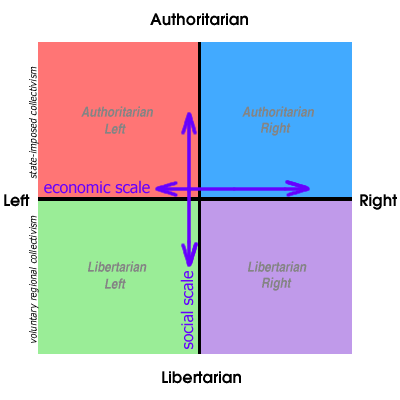
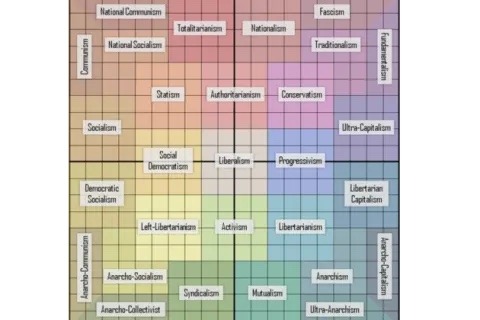
say what you will about either image; i’d argue for the unintiated, the right image is a good introduction to some lesser discussed ideologies… some of which your oc may or may not fall under.
either way, taking a good look at your character’s values on the economic + social side of things is a good place to start, as politics are something that, well… we all have ‘em, you can’t avoid ‘em.
clearly, this will have to be adjusted for settings that utilize other schools of thought (such as fantasy + historical fiction and the divine right of kings), but again, economic/social scale plotting will be a good start for most.
ii. religion + philosophy
is your oc religious? do they believe in a form of higher power? do they follow some sort of philosophy?
are they devout? yes, this applies to non-religious theist and atheist characters as well; in the former’s case… is their belief in a higher power something that guides many of their actions or is their belief in a higher power something that only informs a few of their actions? for the atheists; do they militant anti-theists who believe atheism is the only way and that religion is harmful? or do they not care about religion, so long as it’s thrust upon them?
for the religious: what is your oc’s relationship with the higher power in question? are they very progressive by their religion’s standards or more orthodox? how well informed of their own religion are they?
does your oc follow a particular school of philosophical thought? how does that interact with their religious identification?
iii. values
by taking their political stance and their religious + philosophical stance, you have a fairly good grasp on the things your character values.
is there anything they value - due to backstory, or what they do, or what they love - that isn’t explained by political stance and religious and/or philosophical identification? some big players here will likely be your oc’s culture and past.
of everything you’ve determined they value, what do they value the most?
iv. “the line”
everyone draws it somewhere. we all have a line we won’t cross, no matter the lengths we go for what we believe is a noble cause. where does your character draw it? how far will they go for something they truly believe is a noble cause? as discussed in part iii of my tips for morally grey characters,
would they lie? cheat? steal? manipulate? maim? what about commit acts of vandalism? arson? would they kill?
but even when we have a line, sometimes we make exceptions for a variety of reasons. additionally, there are limits to some of the lengths we’d go to.
find your character’s line, their limits and their exceptions.
v. objectivism/relativism
objectivism, as defined by the merriam-webster dictionary, is “an ethical theory that moral good is objectively real or that moral precepts are objectively valid.”
relativism, as defined by the merriam-webster dictionary, is “a view that ethical truths depend on the individuals and groups holding them.”
what take on morality, as a concept, does your character have? is morality objective? is morality subjective?
we could really delve deep into this one, but this post is long enough that i don’t think we need to get into philosophical rambling… so this is a good starting point.
either way, exploring morality as a concept and how your character views it will allow for better application of their personal moral code.
vi. application
so, now you know what they believe and have a deep understanding of your character’s moral code, all that’s left is to apply it and understand how it informs their actions while taking their personality into account.
and interesting thing to note is that we are all hypocrites; you don’t have to do this, but it might be fun to play around with the concept of their moral code and add a little bit of hypocrisy to their actions as a treat.
either way, how do your character’s various beliefs interact? how does it make them interact with the world? with others? with their friends, family, and community? with their government? with their employment? with their studies? with the earth and environment itself?
in conclusion:
there’s a lot of things that inform one’s moral compass and i will never be able to touch on them all; however, this should hopefully serve as at least a basic guide.
2K notes
·
View notes
Text
Be mean to your characters.
What do they take for granted? Take it away from them.
The one thing they know for certain? Make them doubt it.
Their worst fear? Throw it at their faces.
Make their plans fail. Make them cry. Make them question things and then learn about them and the way they react in the process.
Be mean to your character. Then be kind to them for a while, because after all that they may deserve it.
7K notes
·
View notes
Text
Andres barely does. He only remembers when his mom and sister left and some memories of him with his sister. Everything else is blocked out or a huge blur until his mid teenage years.
Indah does, but he doesn't like to talk about it. Mainly because he doesn't think it's even worth talking about, unless you manage to ask some niche questions or something.
does your oc remember their childhood?
119 notes
·
View notes
